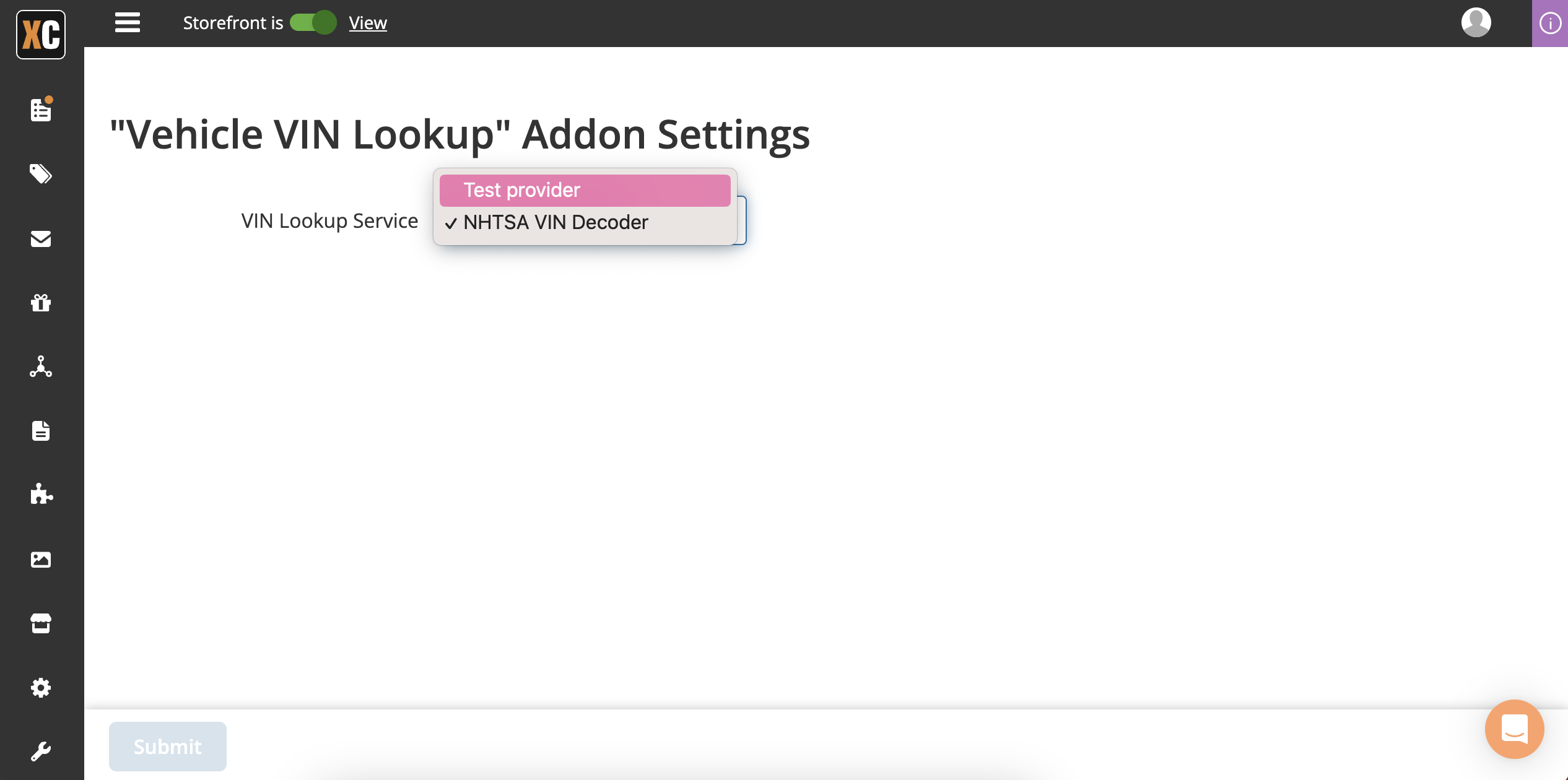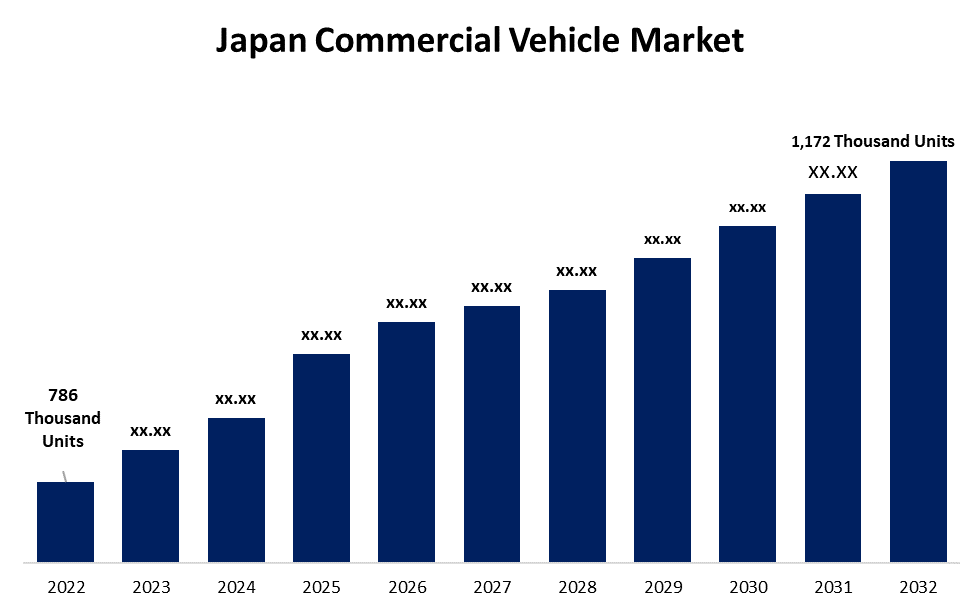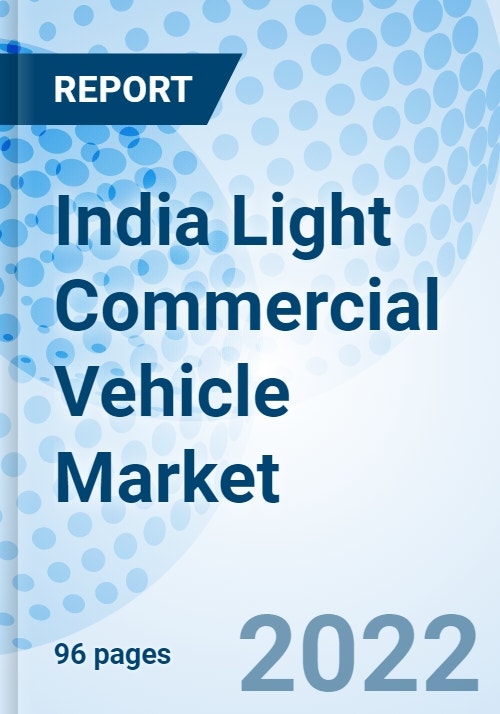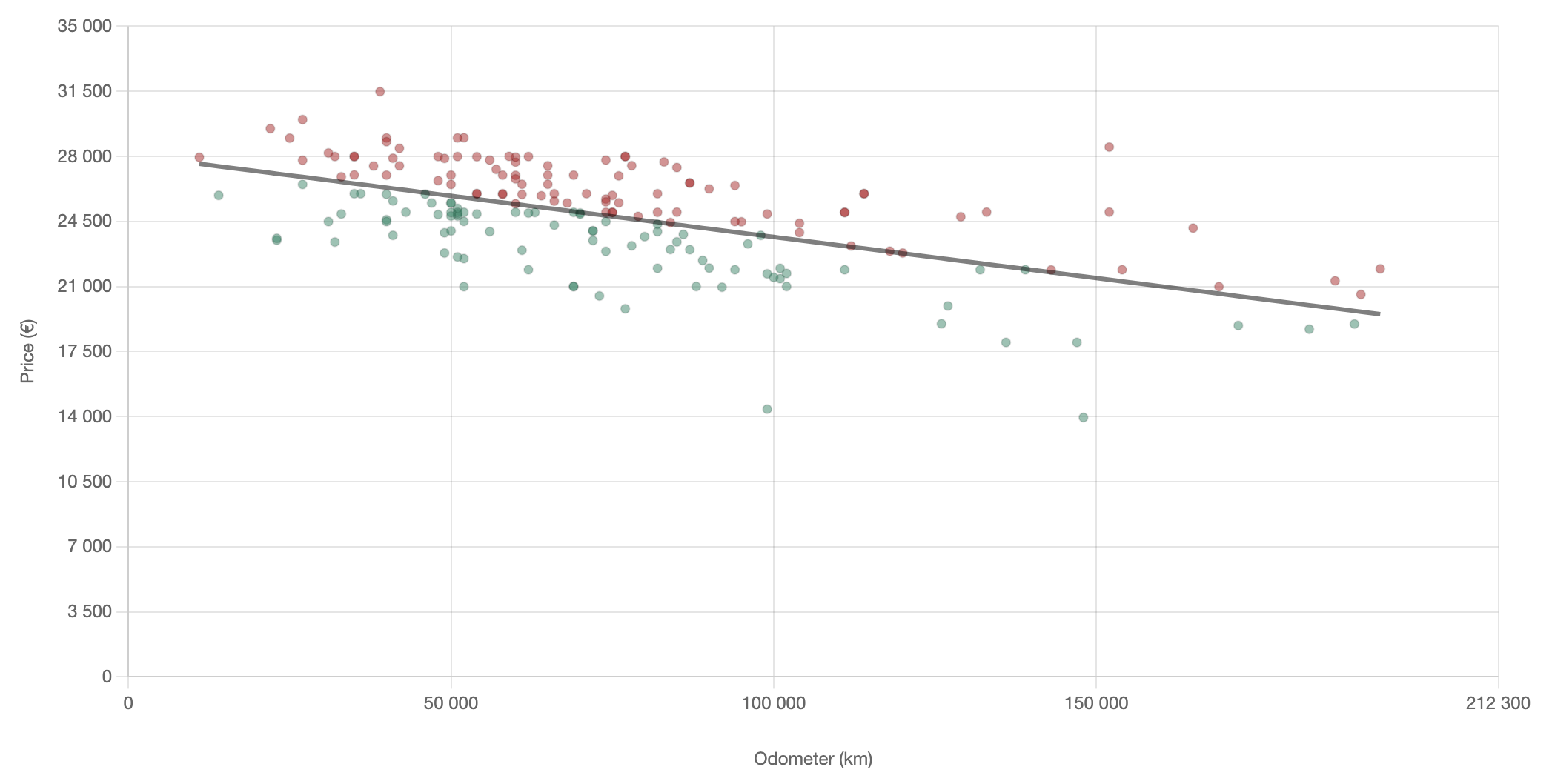Commercial Vehicle Market Value VIN Lookup: Your Essential Guide to Informed Decisions types.truckstrend.com
In the bustling world of commerce, commercial vehicles are more than just modes of transport; they are vital assets, workhorses that drive businesses forward. From long-haul semi-trucks and local delivery vans to specialized construction equipment and utility vehicles, understanding their true market value is paramount. Whether you’re a potential buyer looking to make a sound investment, a seller aiming for a fair return, a lender assessing collateral, or an insurer calculating risk, accurate valuation is non-negotiable. This is where the Commercial Vehicle Market Value VIN Lookup emerges as an indispensable tool.
At its core, a Commercial Vehicle Market Value VIN Lookup is the process of using a vehicle’s unique 17-character Vehicle Identification Number (VIN) to access a wealth of data that directly influences its current market worth. It’s not just about getting a number; it’s about uncovering the story behind the vehicle – its origins, history, specifications, and potential red flags – all crucial elements in determining its fair market value. In a market often characterized by complexity and specialized configurations, a thorough VIN lookup provides the transparency and data-driven insights necessary to make truly informed decisions, transforming guesswork into strategic action.
Commercial Vehicle Market Value VIN Lookup: Your Essential Guide to Informed Decisions
What is a VIN and Why is it Crucial for Valuation?
The Vehicle Identification Number (VIN) is often called the "fingerprint" of a vehicle. This unique 17-character alphanumeric code is assigned to every vehicle manufactured since 1981, adhering to a global standard (ISO 3779). Each segment of the VIN holds specific information:
- World Manufacturer Identifier (WMI): Characters 1-3 identify the country of origin and the manufacturer.
- Vehicle Descriptor Section (VDS): Characters 4-9 describe the vehicle’s attributes, such as make, model, body type, engine type, and Gross Vehicle Weight Rating (GVWR) – a particularly critical detail for commercial vehicles.
- Vehicle Indicator Section (VIS): Characters 10-17 are the unique identifier for that specific vehicle, including the model year (character 10), assembly plant (character 11), and a sequential production number (characters 12-17).
For commercial vehicle valuation, the VIN is crucial because it provides an undeniable link to the vehicle’s factory specifications. It ensures you’re valuing the exact model, engine, and configuration it was built with, rather than relying on potentially inaccurate descriptions. Beyond original specs, the VIN is the key to unlocking the vehicle’s historical data, which is paramount for valuation. Without the VIN, assessing a commercial vehicle’s true market worth would be largely speculative, based on assumptions rather than verifiable facts.

The Pillars of Commercial Vehicle Market Value
Determining the market value of a commercial vehicle is a multifaceted process influenced by several key factors, all of which can be informed, directly or indirectly, by a comprehensive VIN lookup:
- Make, Model, and Year: Certain brands and models hold their value better due to reputation for reliability, fuel efficiency, or specific industry demand. The model year dictates the vehicle’s age and the technology it incorporates.
- Mileage and Hours: For commercial vehicles, especially heavy-duty trucks and equipment, both mileage and engine hours are critical indicators of wear and tear. High mileage/hours significantly depreciate value.
- Physical Condition: This includes the exterior (body, paint, rust), interior (cabin, seats, dashboard), mechanical components (engine, transmission, brakes, tires), and the functionality of all systems. A VIN lookup can reveal past accidents that impact current condition.
- Maintenance and Service History: A well-documented history of regular maintenance and repairs indicates a vehicle has been properly cared for, suggesting greater reliability and longevity. While not always directly in a VIN report, it can be inferred from a clean history.
- Accident and Damage History: Major accidents, salvage titles, flood damage, or fire damage significantly reduce value. A VIN lookup is the primary way to uncover this critical information.
- Specific Equipment and Upfits: Many commercial vehicles are customized with specialized equipment (e.g., liftgates, refrigeration units, cranes, dump bodies, plows). The type, condition, and market demand for these upfits heavily influence the overall value.
- Market Demand and Economic Conditions: The general economic climate, fuel prices, and specific industry demand (e.g., construction boom, logistics growth) can cause values to fluctuate.
- Location: Regional market conditions can vary, affecting demand and pricing.


Benefits of VIN Lookup for Commercial Vehicle Valuation
Leveraging VIN lookup services offers distinct advantages for various stakeholders in the commercial vehicle market:
- For Buyers: Gain an unparalleled understanding of the vehicle’s past, including accident history, title issues, and true specifications. This empowers confident purchasing decisions, provides strong negotiation leverage, and helps avoid costly surprises or scams.
- For Sellers: Establish a credible and transparent asking price backed by verifiable data. A clean history report can instill buyer confidence, facilitate a quicker sale, and potentially command a higher price.
- For Lenders and Insurers: Accurately assess risk and determine fair loan values or premium rates. VIN lookup provides objective data to support underwriting decisions and mitigate financial exposure.
- For Fleet Managers: Optimize asset management by tracking depreciation, planning for replacements, and ensuring compliance. It aids in valuing existing assets for financial reporting and strategic planning.
How to Perform a Commercial Vehicle Market Value VIN Lookup
Performing a VIN lookup is a straightforward process, but interpreting the results requires attention to detail.
Step 1: Locate the VIN
The VIN is typically found in several locations on a commercial vehicle:
- On the driver’s side dashboard, visible through the windshield.
- On the driver’s side door jamb (on a sticker).
- On the vehicle’s title, registration, or insurance documents.
Step 2: Choose Your Valuation Method/Tool
Several resources are available, ranging from free basic checks to comprehensive paid reports:
- Online VIN Lookup Services (Paid): Companies like Carfax, AutoCheck, and VINCheckPro offer detailed history reports for a fee. Some specialized commercial vehicle databases (e.g., EquipmentWatch, TruckPaper’s data services) also exist.
- Industry Guides (Subscription/Paid): Resources like NADAguides (National Automobile Dealers Association) and Black Book provide valuation data for various vehicle types, including commercial.
- Professional Appraisers: For high-value, specialized, or unique commercial vehicles, a certified independent appraiser can provide the most accurate and defensible valuation.
- Dealer Appraisal Tools: Many commercial vehicle dealerships use proprietary software or subscribe to industry tools for trade-in valuations.
Step 3: Input the VIN and Gather Data
Once you have the VIN and have chosen your service, simply input the 17-character code. The system will then retrieve information, which typically includes:
- Original factory specifications (engine, transmission, GVWR, body type).
- Past ownership records and title history.
- Accident and damage reports (if reported to databases).
- Lien and repossession history.
- Recall information.
- Odometer readings (to detect potential tampering).
- Service and maintenance records (if reported by dealerships or service centers).
Step 4: Interpret the Data and Determine Value
This is where expertise comes in.
- Compare Specs: Ensure the vehicle’s current configuration matches its factory build.
- Analyze History: Look for red flags like salvage titles, flood damage, or multiple severe accidents. A clean history generally commands a higher value.
- Assess Mileage/Hours: High usage will depress value.
- Consider Upfits: Factor in the value of any added equipment, which may not be fully captured by generic valuation tools.
- Cross-Reference: Compare the report findings with the vehicle’s physical condition and the current market asking prices for similar vehicles. Adjust your valuation based on discrepancies or unique features.
Key Information Uncovered by a VIN Lookup
A comprehensive VIN lookup report can reveal:
- Vehicle Specifications: Precise details like engine size, fuel type, transmission type, axle configuration, GVWR, body style, and original equipment.
- Ownership History: Number of previous owners, type of ownership (personal, commercial fleet), and duration of ownership.
- Accident History: Dates of accidents, reported damage severity, and whether the vehicle was declared a total loss or salvage.
- Title Issues: Presence of salvage, rebuilt, flood, lemon, or other branded titles that significantly impact value and legality.
- Lien Information: Any outstanding loans or financial claims against the vehicle.
- Recall Information: Unrepaired manufacturer recalls that could pose safety risks or affect performance.
- Odometer Discrepancies: Warnings if the reported mileage appears inconsistent, suggesting potential rollback.
- Service Records: While not always exhaustive, some reports include service history if performed at dealerships reporting to national databases.
Challenges and Solutions in Commercial Vehicle Valuation
Valuing commercial vehicles presents unique challenges compared to passenger cars:
-
Challenges:
- Specialized Equipment and Upfits: The value of custom bodies, cranes, refrigeration units, or other specialized gear can be hard to quantify and may not be factored into standard valuation guides.
- High Mileage/Hours: Commercial vehicles often accrue far more miles and hours than passenger cars, leading to rapid depreciation not always reflected linearly.
- Limited Comparable Sales Data: For niche or highly specialized vehicles, finding direct comparables in the market can be difficult.
- Varying Condition Definitions: What constitutes "good" condition for a 500,000-mile truck is different from a 50,000-mile passenger car.
- Residual Value: Predicting the future value of specialized assets can be complex.
-
Solutions:
- Professional Appraisal: For complex or high-value assets, engaging a certified commercial vehicle appraiser is often the best solution. They have access to specialized databases and expertise in valuing unique configurations.
- Industry-Specific Guides: Utilize commercial-focused valuation guides (e.g., NADA Commercial Truck Guide, EquipmentWatch) that account for heavy-duty usage and specialized equipment.
- Focus on Application: Consider the vehicle’s primary intended use and how well it’s suited for that purpose. A well-maintained vehicle for a specific industry might hold its value better within that niche.
- Adjust for Upfits Separately: Research the market value of specific upfits and add them to the base vehicle value.
- Thorough Physical Inspection: A VIN lookup is a starting point. Always combine it with a hands-on inspection by a qualified mechanic who understands commercial vehicles.
Tips for Maximizing Your VIN Lookup Effectiveness
- Use Multiple Sources: Don’t rely on just one report. Cross-reference information from different VIN lookup services or industry guides to get a more complete picture.
- Combine with Physical Inspection: A VIN report tells you the history, but only a physical inspection reveals the current mechanical and cosmetic condition.
- Consider the Vehicle’s Specific Application: A dump truck used in heavy construction will have different wear patterns and value drivers than one used for light hauling.
- Factor in Regional Market Differences: Prices can vary significantly based on local demand, economic conditions, and the availability of similar vehicles.
- Understand "As-Is" vs. "Reconditioned" Value: A VIN lookup helps determine the "as-is" value. Factor in the cost of necessary repairs or reconditioning if you plan to restore the vehicle.
- Verify Odometer Readings: Pay close attention to odometer discrepancies reported by the VIN lookup service, as mileage rollback is a significant fraud risk.
Commercial Vehicle Market Value VIN Lookup Service Comparison
| Service/Approach | Description | Typical Cost Range (USD) | Key Benefits | Considerations |
|---|---|---|---|---|
| Basic Free VIN Check | Government-run (e.g., NMVTIS) or limited data sites. Often only checks for salvage/total loss titles. | Free | Quick initial check for major red flags. | Very limited information; does not provide market value or comprehensive history. |
| Commercial VIN History Report (e.g., Carfax, AutoCheck) | Comprehensive reports including accident history, title issues, ownership, recalls. | $25 – $50 per report | Detailed history; essential for identifying major problems; widely recognized by buyers/sellers. | May not include all maintenance records; primarily focused on title/accident history, not direct market value. |
| Industry Valuation Guides (e.g., NADAguides, Black Book, EquipmentWatch) | Subscription-based services providing estimated market values based on make, model, year, and condition. | $50 – $300+ per month (subscription) | Provides professional, data-driven market value estimates for various commercial vehicle types; often includes adjustments for mileage/hours. | Requires subscription; estimates are general and need adjustment for unique features/upfits; not a history report. |
| Specialized Commercial Vehicle Databases | Platforms focused specifically on heavy equipment, trucks, and specialized vehicles. | Varies (often higher subscription) | Deep dives into commercial specs; better for valuing specialized equipment; some may integrate history data. | Can be expensive; primarily for industry professionals; data can still be limited for highly niche vehicles. |
| Professional Appraisal | On-site inspection and valuation by a certified appraiser. | $300 – $1000+ per vehicle | Most accurate and defensible valuation, especially for unique or high-value assets; accounts for specific conditions and upfits. | Highest cost; requires scheduling and physical presence; best for significant investments or disputes. |
Frequently Asked Questions (FAQ)
Q1: Is a commercial vehicle VIN lookup free?
A1: Basic VIN checks that only reveal if a vehicle has been reported as stolen, salvaged, or totaled may be available for free through government sites like NMVTIS (National Motor Vehicle Title Information System). However, comprehensive reports that include accident history, ownership details, and service records typically come with a fee from commercial providers like Carfax or AutoCheck.
Q2: How accurate is the market value provided by a VIN lookup?
A2: A VIN lookup provides the data necessary to determine market value, but it doesn’t always give a single, definitive "price." It reveals the vehicle’s history and specifications, which, when combined with current market conditions, physical inspection, and industry valuation guides, allows for a highly accurate assessment. The accuracy depends on the quality of the reporting to the databases.
Q3: Can a VIN lookup tell me about maintenance history?
A3: Some VIN lookup reports may include maintenance history if the work was performed at dealerships or service centers that report to the databases used by the VIN lookup service. However, it’s not guaranteed to be a complete record, especially for work done by independent shops or the vehicle owner. Always ask for physical maintenance records from the seller.
Q4: What if the commercial vehicle’s VIN is missing or unreadable?
A4: A missing or unreadable VIN is a major red flag and should raise immediate suspicion. It could indicate theft, tampering, or serious title issues. Do not purchase a commercial vehicle without a clear, verifiable VIN. If parts of the VIN are unreadable, contact the manufacturer or a state DMV to see if they can help decode it from other vehicle documents.
Q5: Does a VIN lookup cover all types of commercial vehicles, including heavy equipment?
A5: Standard VIN lookups (like Carfax) primarily cover on-road commercial vehicles (trucks, vans, buses). For heavy equipment (excavators, bulldozers, loaders), you’ll often need specialized equipment databases or professional appraisers who use Equipment Identification Numbers (EINs) or Product Identification Numbers (PINs) which function similarly to VINs for off-road machinery.
Conclusion
In the dynamic and often high-stakes world of commercial vehicles, knowledge truly is power. The Commercial Vehicle Market Value VIN Lookup stands as an indispensable tool, transforming uncertainty into informed decision-making. By meticulously uncovering a vehicle’s unique identity, its historical journey, and its fundamental specifications, the VIN lookup process empowers buyers to invest wisely, sellers to price competitively, and all stakeholders to navigate the commercial vehicle market with confidence. While no single tool can replace due diligence, combining a comprehensive VIN lookup with physical inspection and market awareness provides the most robust foundation for understanding and securing the true value of these essential assets.
